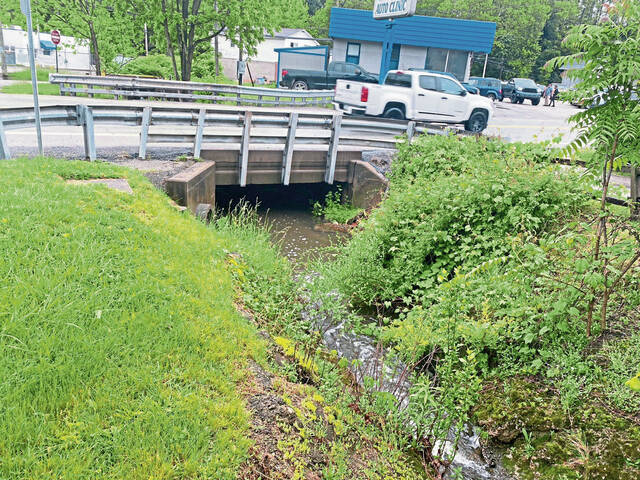The Municipal Authority of Westmoreland County was cited last month for excessive levels of organic carbon in the drinking water consumed by about half of the more than 400,000 residents serviced by the utility.
Both state and local officials said the violation involved a slight increase in the substances deposited in the water from decomposing organic materials such as leaves, grass and branches that leached in to Beaver Run Reservoir in Bell Township.
On Tuesday, authority officials said heavy rains caused the increased carbon levels by causing the reservoir’s spillway to overflow and pulling organic materials towards the treatment plant’s intake. Precipitation last year far exceeded annual averages and resulted in record water levels at the reservoir, according to the authority’s monthly report issued in March.
“There are no health risks involved,” authority manager Michael Kukura said of the excessive carbon found in the water.
The higher carbon levels required the authority treat the water with additional chemicals, officials said.
Water from the Beaver Run plant is sent to customers in the northern half of Westmoreland County as well as residents in Monroeville and Plum, Allegheny County, and Gilpin, Armstrong County.
Lauren Fraley, spokeswoman for the state’s Department of Environment Protection office in Pittsburgh, confirmed the excess carbon levels caused no health effects for residents.
“It can lead the formation of disinfection byproducts, but sampling results for these byproducts was below the state (levels),” Fraley wrote in an email to the Tribune-Review.
She said the violation resulted in no civil penalties. The authority published notice of the violation on its website and as part of its customer confidence report mailed to customers in March.
Officials said the violations involved carbon readings taken throughout 2018 and was based on quarterly averages. Samples taken this year indicated the amount of organic carbon in the water is now at normal levels. Less rain and new filters at the plant led to the decrease, said authority assistant manager Jack Ashton.
“We scheduled to change out the filters and started that in October,” Ashton said.







